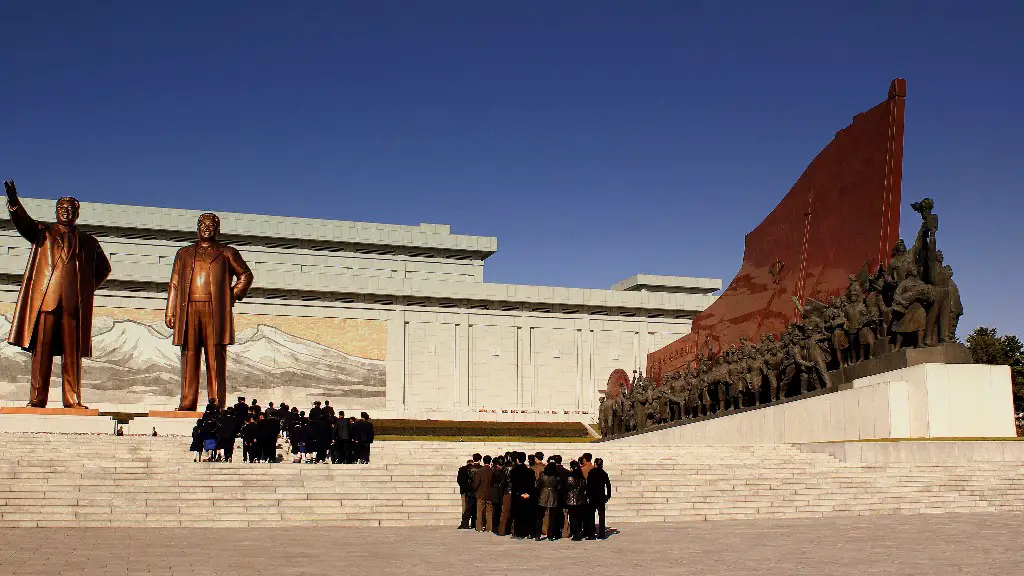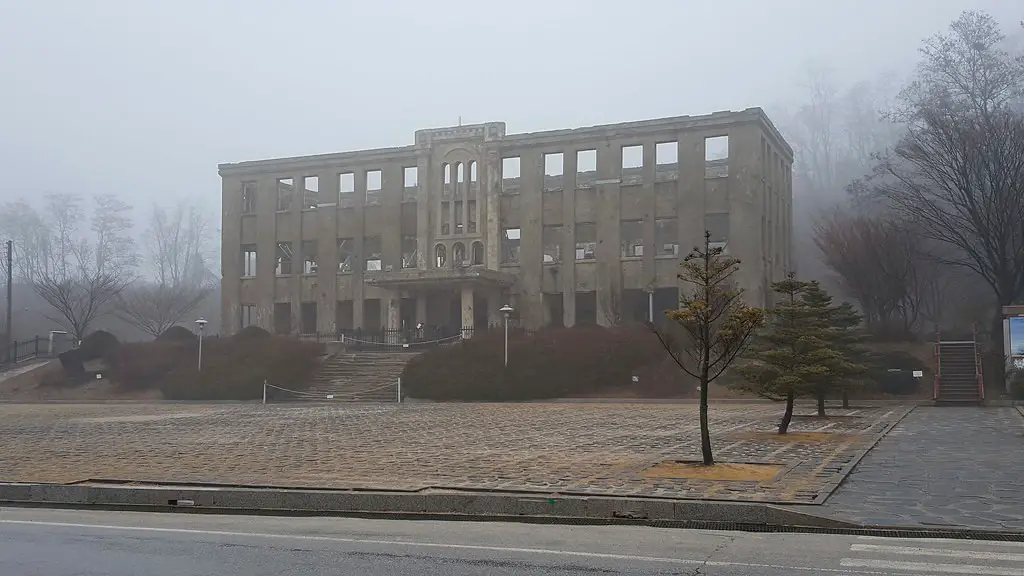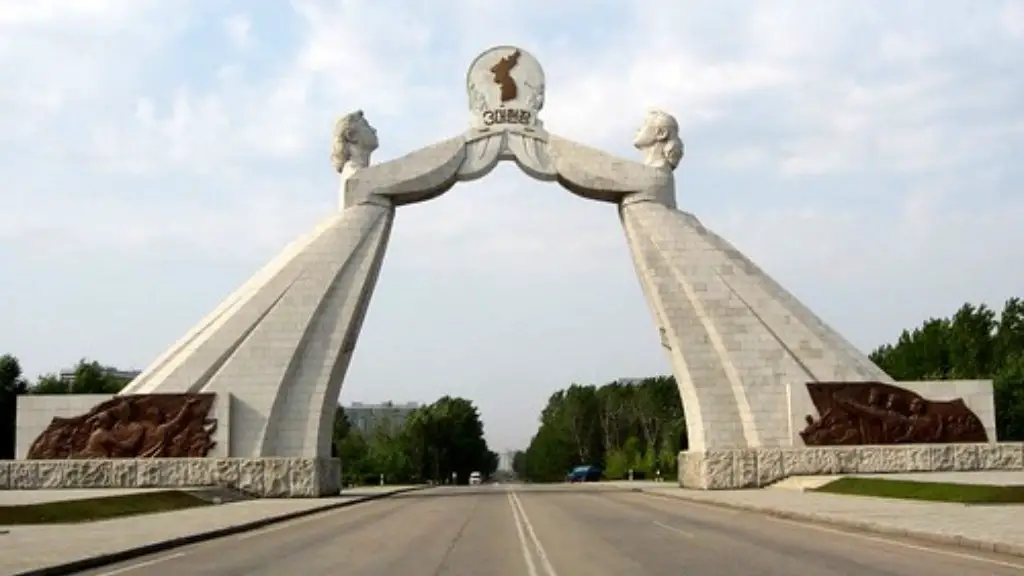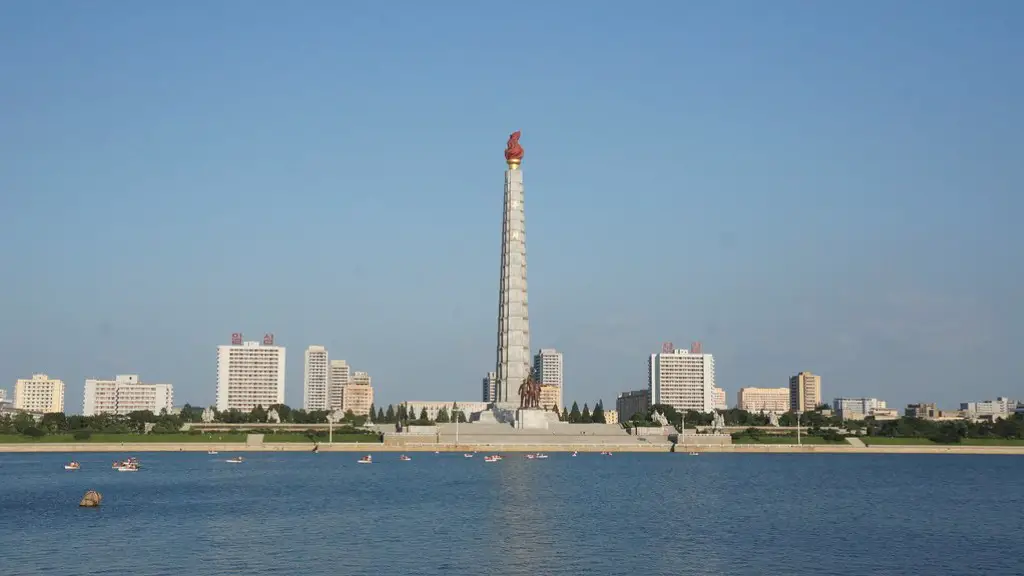North Korea is one of the most isolated countries in the world. The hermit nation has been ruled by the Kim dynasty since 1948, and is known for its oppressive government and strict control of its citizens. The country’s isolation is largely due to its policies, including restrictions on media and travel, a lack of diplomatic relations, and human rights violations.
North Korea has been isolated from much of the world since the end of the Korean War in 1953. As part of the armistice agreement, the Korean Demilitarised Zone was established to divide the two Koreas and keep the peace. This has resulted in North Korea being largely shut off from the outside world.
North Korea’s government is highly authoritarian and has been criticised for human rights violations. North Koreans are forbidden from speaking to foreigners or expressing opinions that are contrary to the regime. Those who are seen to be part of the opposition or trying to escape the country are often subject to harsh punishments, including imprisonment and execution.
Media access is strictly controlled in North Korea and foreign media is banned. The government heavily censors any information that is broadcasted in the country and only approved sources are allowed to be read or watched. North Korea is also one of the few remaining countries where a form of Internet access is not available to the public, with only a select few in the government and military having access.
North Korea is also largely isolated from other countries in regards to diplomacy. It has few diplomatic relations with other nations, and those it does have are largely limited to countries in its region such as China and Russia. This has resulted in a lack of international trade with other countries due to sanctions imposed by the international community.
North Korea’s isolation has also been exacerbated by its nuclear weapons program. The country has been testing nuclear weapons since 2006 and further testing led to more stringent sanctions being imposed by the United Nations. This has increased the country’s isolation and preserved the culture of secrecy that North Korea has become known for.
Military Isolation
North Korea’s isolation has been further deepened by its military buildup and provocations. The isolated nation has an estimated 1.2 million active duty soldiers, making it one of the most heavily armed nations in the world. This has lead to tensions with other countries in the region, most noticeably South Korea and Japan, and has also increased North Korea’s state of isolation.
North Korea has been accused of funding its military expansion through illicit activities such as counterfeiting US currency and trafficking drugs. This has further isolated it from other countries as a pariah state. The country’s continued refusal to stop its nuclear weapons program has also exacerbated its international isolation as it continues to break multiple United Nations resolutions.
North Korea has also threatened other countries with missile and nuclear tests, which has led to an increase in tensions. This has further isolated the country and caused other nations to take a more cautious approach when dealing with North Korea.
In recent years, North Korea has taken steps to improve its relations with the outside world. It has entered into a series of negotiations with the United States and South Korea, leading to some easing of tensions. North Korea has also participated in a number of international sporting competitions, such as the Olympics and the Asian Games, which has been seen as a sign that the country is trying to open up to the world.
Economic Isolation
North Korea’s isolation is also exacerbated by its economic situation. The country is mainly dependent on foreign aid, particularly from China, and is also subject to numerous international trade sanctions due to its nuclear weapons program. These sanctions have resulted in a lack of access to foreign markets, leading to a decrease in North Korea’s international trade.
The North Korean economy is highly isolated from the rest of the world and mainly focused on a state-run planned economy. This has resulted in widespread poverty for its citizens and a lack of access to basic necessities. This has caused many citizens to seek refuge abroad and, in some cases, has resulted in a process of repatriation if they are caught by border guards.
The economic situation in North Korea also affects its citizens’ ability to access the internet and use modern technology. Access to the internet and other digital services is not available to the general public due to costs and a lack of infrastructure, resulting in even further isolation for North Koreans.
North Korea’s economic isolation has also been exacerbated by its human rights violations. International aid organizations have been denied access to the country, leading to a further lack of resources and access to modern technology.
Cultural Isolation
North Korea’s isolation is also due to its highly secretive and authoritarian culture. The government has attempted to tightly control its citizens’ access to outside information and has imposed punishments on those who are seen to oppose the regime.
The culture of censorship in North Korea is heavily enforced. Citizens are prohibited from having contact with foreigners and from expressing any views that are seen as critical of the regime. This has resulted in an atmosphere of fear, which has further isolated the country from the outside world.
North Korea also has a long history of xenophobia and anti-American sentiment. This has resulted in a lack of trust between the two countries and a further decrease in the ability for North Koreans to interact with the outside world.
The isolation that North Korea faces from much of the world is mainly due to its policies and actions. The oppressive nature of its government and its repeated violations of human rights has further isolated it from other countries. Its military buildup and nuclear weapon program has also caused other nations to take a more cautious approach when engaging with North Korea. This has led to a further decrease in North Korea’s international trade, resulting in an even more isolated nation.
International Reactions
North Korea’s isolation has been met with international condemnation. The United Nations and many other countries have imposed sanctions on the country in an effort to change its policies. Many countries have also called for an end to the country’s human rights violations and for North Korea to open up to the world.
The international community has also taken steps to provide aid to those who are suffering in North Korea. In recent years, several humanitarian missions have been launched to provide food and other essential supplies to the country. However, these efforts have been met with resistance from the North Korean government, who has been reluctant to allow outsiders access to the country.
In recent years, there have been some signs that North Korea is opening up to the world. The country has taken part in several international summits, leading to some easing of tensions between it and other nations. In addition, the country has allowed some foreign business investments, giving hope that it might be slowly opening up to the world.
However, North Korea’s isolation is still largely due to its policies and actions. The country will need to make significant changes to its government and its nuclear weapons program in order to re-engage with the international community. Until then, North Korea will remain largely isolated from the rest of the world.
International Tourism
In recent years, North Korea has turned to international tourism as an attempt to engage with the world. The country has opened up several tourist attractions to the public, such as the famous Kumsusan Palace of the Sun, which is the final resting place of Kim Il Sung and Kim Jong Il. The country has also allowed some tourists to visit the country, although these trips are highly regulated and closely monitored by the government.
However, these attempts to engage with the world have also been met with criticism from the international community. The country still heavily restricts access to its citizens and has been criticized for its human rights violations. As such, many countries have imposed travel bans and other restrictions on those wishing to visit North Korea.
Despite North Korea’s attempts to engage with the world through tourism, its isolation will likely remain in place for the foreseeable future. The country will need to make significant changes to its government and policies in order to be welcomed back into the international community.
International Investment
In recent years, North Korea has also attempted to generate international investment to help boost its economy. The country has courted foreign investors by offering generous tax incentives and other benefits. Despite these attempts, the country has had limited success in attracting foreign investment due to its isolation and restrictive government policies.
In recent years, there have been some attempts to close the gap between North Korea and the rest of the world. China and South Korea have both taken steps to improve relations with North Korea by investing in infrastructure projects and expanding trade. This has been seen as a step towards improving ties between the two countries and trying to open up North Korea to the world.
However, North Korea’s isolation is still largely due to its policies and actions. The country will need to make significant changes to its government and nuclear weapons program in order to attract more foreign investment and engagement with the international community.
Humanitarian Assistance
Due to the severe economic conditions in North Korea, many international aid organizations have provided humanitarian assistance to the country. These organizations have provided food, medical supplies, and other aid to help those suffering in the country.
However, the North Korean government has been reluctant to accept foreign aid and has accused these organizations of attempting to undermine its government. This has led to some international aid organizations being forced to withdraw from the country.
Despite these attempts at humanitarian aid, North Korea will continue to remain largely isolated from the rest of the world. The country will need to make significant changes to its government and policies in order to be welcomed back into the international community.





